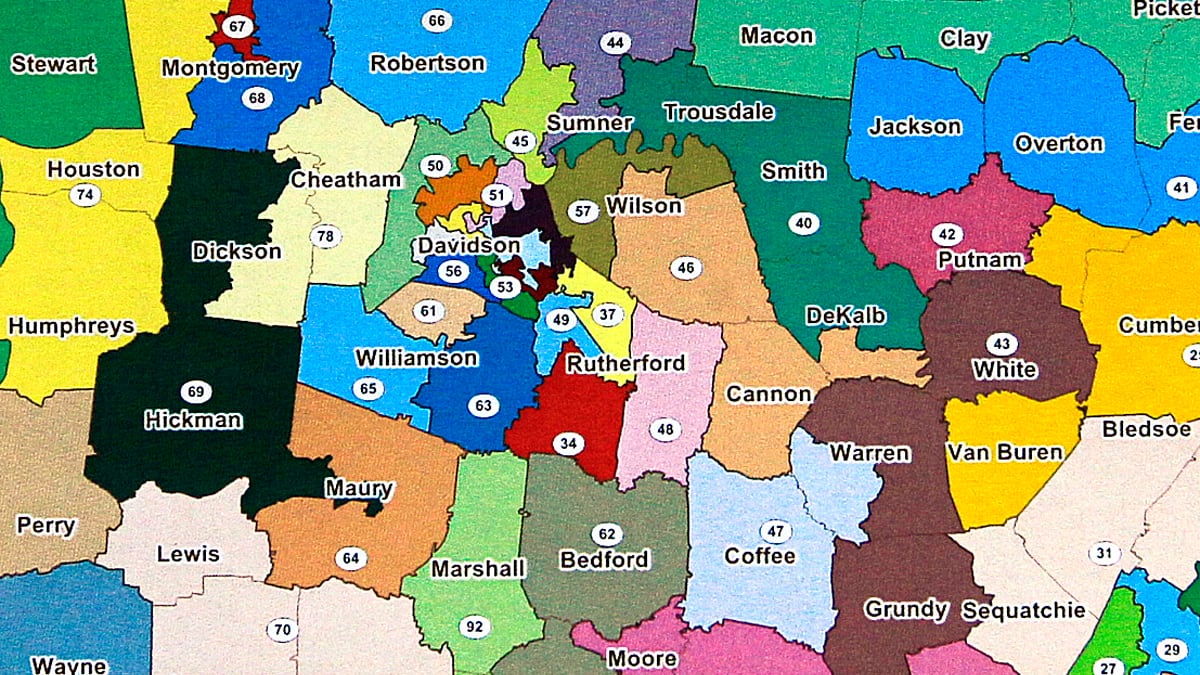The rigged system of redistricting is quietly reaching new lows of collusion and cronyism in states across the country.

It’s an update to an old story—the effort of legislatures to draw themselves partisan safe seats, known as Gerrymandering. Simply put, it’s when politicians pick their people, instead of people picking their politicians.
It comes once every ten years, as mandated by the Constitution, reflecting population shifts recorded in the census. A few states, like Iowa and California, have followed through with independent redistricting commissions after citizen insistence overwhelmed partisan resistance.
But in a striking number of states, the weasel-y-ness is worse than ever, with outrages and embarrassments covered mostly by local media.
The redistricting mess got some deserved national attention this past week when Texas was court-ordered to push its Republican presidential primary back to at least May 28 because the district lines were not yet drawn, meaning that local candidates don’t yet know who exactly they will be running to represent.
Texas redistricting is often a swampy affair. Last time around, an explicit effort by Tom DeLay’s troops to redraw lines mid-decade to minimize centrist Democrats’ seats led to a number of well-deserved indictments. In 2012, the fight has the additional flavor of racial politics, as Latino groups have sought to expand their power commensurate to their population total, rather than being lumped into “minority” districts with African-American legislators.
But the real clown-car pileup has been the effort by incumbent congressmen to ensure that choice landmarks are drawn into their districts: Congressman Lamar Smith has been fighting hard to get lines drawn so that a local country club gets put in his district – presumably golf could then be called constituent outreach. Fellow Republican Congressman Joe Barton is fighting for the lines to be drawn so that he gets a ballpark in his district. This is the level of pettiness that helped to take Texas redistricting all the way to the U.S. Supreme Court. Now, it’s had the unintended effort of impacting the presidential race.
But Texas is far from alone in a stunning lack of statesmanship shown in the redistricting process.
In Arizona, an independent redistricting commission was mandated by a citizen-backed ballot initiative. That didn’t stop Governor Jan Brewer from trying to keep the independent commission for coming back with redistricting maps that “elevated competitiveness over other goals” – namely the goal of giving Republicans disproportionate power in the state. Her power grab was backed by partisan cronies in the state legislature but overturned by the decidedly less self-interested state Supreme Court. Undaunted by decency, the state senate is still trying to reverse the voters’ will by eliminating the independent commission.
In New York, 186 state legislators swore to support non-partisan redistricting efforts when they ran for office in the angry, anti-incumbent year of 2010. Most came down with convenient amnesia when they got back to Albany. The brinksmanship has continued despite promises by Governor Andrew Cuomo to veto nakedly partisan district lines and the efforts of good government group coalitions like ReShapeNY (on which, full disclosure, I serve on the advisory board.) Not only are New York’s redistricting maps still not set, initial glimpses have shown the same old partisan games, with potential rivals drawn out into different districts by incumbents seeking to preserve their power at almost any cost. Mediators and judges are now looming over the legislative impasse. One key dynamic to watch is whether a deal is struck that would at least try to move a state constitutional change forward to create an independent commission in ten years’ time. The principle of short-term self-interest predictably outpaces ethics or honor. New York is one of only two states in the nation to have not yet even voted on lines that will be on the ballot this fall.
Because of the Voting Rights Act, race and politics are particularly entwined during redistricting season. In Florida, two congressional incumbents, Republican Mario Diaz-Balart and Democrat Corrine Brown, filed suit to try and stop from taking effect a non-partisan process voted for by citizens, arguing that the state legislature only had the power to redistrict, giving a simple status quo power-play the illusion of high-minded concern given their diversity. In other states throughout the south, particularly Georgia, there have been accusations that the redistricting process this year has aimed to eliminate Democratic seats held by white incumbents, which could have the effect of legally re-segregating the south along political lines. This novel re-reading of the Voting Rights Act would exacerbate the partisan racial divisions that still starkly exist in our politics. A more perfect union would have more minority representatives elected by whites, and vice versa – and the partisan breakdown of districts would end up looking roughly like the partisan composition of the relevant state.
Look, politics ain’t beanbag, as Tammany Hall’s George Washington Plunkitt warned – but that doesn’t mean we have to stand for Tammany Hall tactics or outcomes in the 21st century.
Legislators from both parties will continue to get away with the maximum amount of self-dealing and self-interest they can get away with – unless they feel it is no longer in their self-interest because of citizen pressure. That’s why these local tales of rigging the system of redistricting should matter to you, no matter what state you live in. It’s a civic challenge that goes to the heart of what Benjamin Franklin warned a local citizen when he was asked what the Philadelphia constitutional convention created: “A Republic, if you can keep it.”






